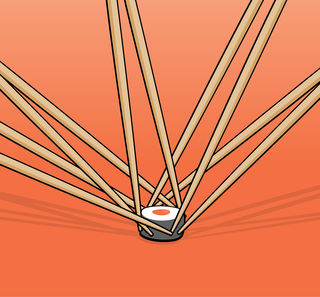Is It Worth It?
Prizes often seem more appealing in the heat of a contest.
By Kate Newman published May 2, 2016 - last reviewed on June 10, 2016

We compete for rewards all the time, especially if we desire them deeply—but what about ones we don't really value? Having to contend for something, it turns out, may actually make us want it more, regardless of its inherent worth.
In a phenomenon known as "auction fever," a state of excitement causes bidders to escalate the amount they are willing to pay. In September, researchers in Germany and Australia published findings in the Journal of Retailing indicating that a sense of social competition—in concert with the pressure of limited time—led subjects to increase their bids in online auctions.
Experiments at the University of California, San Diego explored this dynamic in more prosaic contexts. In one, women who competed to be picked as the best date for a male stranger, based on their descriptions of an ideal first outing, said they would be more likely to accept his invitation, on average, than did those not asked to compete for the date. Yet there was hardly any difference between the two groups in how good a date they thought the stranger would be. In another study, women competing for an audio speaker showed a similar boost in how much they wanted it (but, again, not in how much they liked it).
"People can see competition as a marker of value even when it has been added arbitrarily," says psychologist Nicholas Christenfeld, a co-author of the UC San Diego study. "When people try to grab the stuffed animal in that robotic-claw arcade game, the competitive element can take over and make them want a prize they might not pick up free from the side of the road." The same urge can lead to "winner's remorse"—ending up stuck with something we don't truly desire.
Image: Diego Schtutman/Shutterstock
